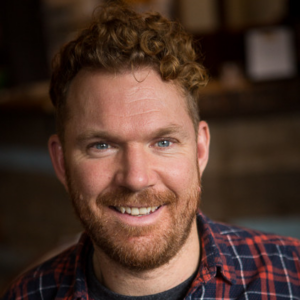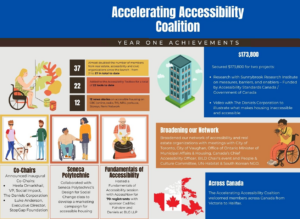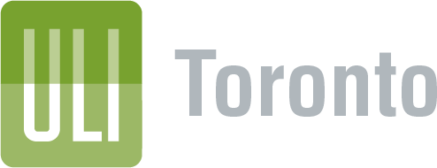News and Views
Meet our Leaders!

Co-Chair Luke Anderson, Executive Director, StopGap Foundation (2022-2024)

Outgoing Co-Chair Heela Omarkhail, VP, Social Impact, The Daniels Corporation (2022-2023)

Incoming Co-Chair Heidi Green, Director, Development, RioCan REIT (2024-2026)
Year 1 Achievements
See what the Coalition accomplished in its first year!

News coverage
The Accelerating Accessibility Coalition has generated local, national and industry attention since launching in 2022.
- CBC.ca – Amid a countrywide housing shortage, what will it take to build more accessible homes?
- STOREYS – Top Real Estate and Accessibility Leaders Form Much-Needed Coalition
- REMI Network New coalition forged to promote accessibility
- CBC News Toronto – CBC News at 6
- CBC Metro Morning – CBC Metro Morning
- Blog post on York University’s Centre for Feminist Research webpage: https://www.yorku.ca/cfr/accessibility-is-innovation-creating-inclusive-spaces-for-all/
We Must Respond to Canada’s Accessible Housing Crisis
APRIL 26, 2023
Maayan Ziv and Mitchell Cohen
When it comes to building homes that meet the needs of all Canadians regardless of their age, size, ability or disability, there are good intentions and progress on how to make it happen, but we’re failing badly on actually making it happen.
Encouragingly, the Canadian Standards Association (CSA), in collaboration with Accessibility Standards Canada, published the first edition of a national standard for accessible dwellings in January. It’s desperately needed direction amidst a patchwork of design and construction guidelines and codes for accessible dwellings across Canada that largely fail to meet the needs of people with disabilities.
But this is a rare bit of light at the end of a very dark tunnel, as illustrated by the state of all things accessible in Ontario.
Without ‘urgent action’, Ontario will fail to meet the Accessibility for Ontarians with Disabilities Act (AODA)’s target of making Ontario accessible by the beginning of 2025. Rich Donovan reached that conclusion in March after extensive consultation with people with disabilities in his interim legislative review of Ontario’s progress in implementing the AODA.
In the report’s conclusion, Mr. Donovan asks Ontario’s premier ‘Do you care?’.
We should all care, and each one of us can do something to meet our shared goal of making Ontario and Canada truly accessible.
At the bare minimum in Ontario, the government needs to push much harder to ensure that all public buildings and services are truly accessible by 2025.
But homes, businesses, transit, outdoor spaces, and job opportunities also need to be accessible. In the area of homes there is immense opportunity.
Millions of new homes need to be built in the next decade to meet Canada’s record-high population growth. Yet without concerted action, the vast majority of these homes will not be accessible to older Canadians and people with disabilities.
According to Statistics Canada, in 2017, one in five (22%) Canadians aged 15 years and over identified as having one or more disabilities and more than half (55.8%) reported having a physical disability. Among those, 44.9% required at least one aid, assistive device or accessibility feature within their home, including ramps, a walk-in bath or shower, a lift device or elevator, lowered counters, or automatic doors.
Yet too many people with disabilities are living in inaccessible homes or in long term care facilities. Many are experiencing homelessness or dangerous conditions that impact the state of their physical and mental well-being.
The profound lack of accessible housing prevents people from participating fully in family and community life, and from pursuing education and careers. This can result in disabled people questioning the value of their lives – too many have considered medical assistance in dying (MAID) as their only viable option.
A sign of an inclusive and prosperous country is where people of all ages and abilities can participate fully in society, including having access to homes that are barrier-free. In his report, the AODA reviewer notes that federally regulated entities must remove barriers under the Accessible Canada Act, and that if built environment issues are not addressed, there is a material risk that these entities will not renew lease space in the province. The government is also failing to maximize the talent and tax revenue that 2.9 million people with disabilities contribute to the economy.
And yet, we continue to design and build homes that exclude people living with a disability.
The Accelerating Accessibility Coalition is working to change that.
Launched last fall, the Coalition is a first-of-its-kind community of real estate development and accessibility leaders that is working to create a more accessible Canada.
Luke Anderson of The StopGap Foundation and Heela Omarkhail of The Daniels Corporation have signed on as inaugural Co-Chairs with ULI Toronto as its secretariat. National and local builders and construction companies including Cadillac Fairview, Choice Properties, EllisDon, BentallGreenOak, Percy Ellis, and The Daniels Corporation have publicly signaled their commitment to the coalition’s mission of significantly increasing the supply of accessible housing.
The coalition has launched a toolbox of resources that promote the development of new homes that have accessibility built in, not bolted on afterwards by request and at extra cost to the homeowner or tenant.
This is critical and doable. Leaders in the home building industry are doing this and so can others.
It’s far past the time for action. Each one of us can and must become part of the solution, contributing to an accessible and more prosperous Ontario by 2025 and a barrier-free Canada by 2040.
Maayan Ziv is founder and CEO, AccessNow. Mitchell Cohen is President and CEO, The Daniels Corporation. Both are founding members of the Accelerating Accessibility Coalition. You can read more about the Coalition at https://toronto.uli.org/programs/the-accelerating-accessibility-coalition/
Canada’s top real estate development and accessibility leaders form coalition to create a more accessible Canada
NOVEMBER 29, 2022
Toronto, ON, November 29, 2022 – Canada’s top real estate development and accessibility leaders today launched the Accelerating Accessibility Coalition (AAC). The AAC is a first-of-its-kind coalition that is challenging home builders to make physical accessibility a greater priority as they build the millions of new homes needed across Canada in the next decade. ULI (Urban Land Institute)’s Toronto District Council will serve as the coalition secretariat and leverage its platform as one of the largest chapters in the global ULI network to shine a spotlight on this issue and mobilize change.
At an event at the World Urban Pavilion – Powered by Daniels in Regent Park, AAC members called on industry organizations and leaders to step up, join the coalition, and commit to the learning that will lead to building new housing that is accessible to people of all ages and abilities.
The AAC is built on the belief that accessible housing benefits everyone. A sign of an inclusive and prosperous country is where people of all ages and abilities can participate fully in society. This includes having access to barrier-free homes. For Canada to fully realize this vision, the supply of accessible housing needs to match the important demand.
According to Statistics Canada, in 2017, 6.2 million (22 per cent) Canadians aged 15 years and over identified as having one or more disabilities. More than half (55.8 per cent) reported having a physical disability. Among those with physical disabilities, 44.9 per cent required at least one type of aid or assistive device or an accessibility feature within their home. This could include ramps, a walk-in bath or shower, lift device or elevator, lowered counters, or automatic doors.
Yet many Canadians living with disabilities face significant barriers related to homes and facilities. As the population continues to age the challenges will continue to increase.
“We hear far too often how Canadians with disabilities still face barriers to safe, accessible, and affordable housing,” said Maayan Ziv, Founder and CEO of AccessNow. “It’s time to unlearn the practices that have established generations of inaccessible design and replace them with inclusive methodologies that reflect the authentic diversity of needs that people with and without disabilities require throughout life.”
Giving greater priority to accessibility can also make good financial sense. New buildings can achieve Rick Hansen Foundation Accessibility CertificationTM (RHFAC) at no additional cost compared to National or Ontario building code through thoughtful planning and design, according to research compiled in 2020 by the Rick Hansen Foundation and HCMA Architecture + Design.
“Torontonians with disabilities should not face barriers to safe and accessible housing,” said Toronto Mayor John Tory. “As we continue to push forward with getting more housing built across the city, accessibility must be a priority. I applaud the work of the Accelerating Accessibility Coalition for its commitment to this issue, and I encourage others to join this effort. Everyone has a role to play in making our city welcoming and accessible for all residents who choose to live here.”
To aid builders, the AAC also launched today the Accessibility Toolbox, highlighting the work and best practices of participating coalition partners including standards, certifications, expert services, and connections to organizations representing people with disabilities. The toolbox will serve as an aggregator that informs and inspires home builders to design and build accessible homes without waiting for building codes or legislation to catch up to the current and evolving needs of Canadians.
The toolbox includes recommended actions that organizations can immediately take that will guide them on their commitment to accessibility. Over the course of the next year, the AAC will host events, webinars and workshops that continue to educate, drive awareness and encourage accountability in the industry.
Accessibility Standards Canada is a federal corporation responsible for developing accessibility standards and funding accessibility standards research. They are supporting the creation of the coalition, and partnering with ACC while contributing to the Accessibility Toolbox.
“We are proud to be part of this networking event and are looking forward to advancing discussions on accessibility with AAC members. We want Canadians to experience accessibility in a consistent and seamless way, no matter where they live. Collaborations like these are mutually beneficial. They can only lead to a greater positive impact in the lives of all Canadians,” said Philip Rizcallah, Chief Executive Officer, Accessibility Standards Canada.
See below for the 21 founding members of the AAC.
QUOTES – The Daniels Corporation, ULI Toronto, Rick Hansen Foundation, CivicAction and BILD are among members of the AAC urging other industry leaders to step up on accessibility and inclusion:
“It is time to challenge others within our industry to step up on accessibility and inclusion,” said Jake Cohen, Chief Operating Officer, The Daniels Corporation. “Let’s do the right thing today, rather than wait until we’re required to do so. The Accessibility Toolbox makes it easy to take those important first steps, and the AAC provides a broad-based community within which knowledge and best practices can be easily learned and shared.”
Richard Joy, Executive Director of ULI Toronto added, “Contributing ULI’s voice and platform as the backbone of the coalition to elevate accessibility is very much in keeping with our mission to convene, converse and transform the future of city-building across the Golden Horseshoe and the world. As home of the industry, we look forward to connecting people with a diversity of opinions and backgrounds to talk about accessibility and build pathways to better outcomes for people of all ages and abilities.”
“Now more than ever, we need to encourage decision makers such as building owners, operators, industry influencers, architects and designers to view their spaces through an accessibility lens to truly understand what people with disabilities experience,” said Sarah McCarthy, Vice President Strategic Initiatives at the Rick Hansen Foundation. “Greatly improved accessibility will result in a Canada where everyone can contribute and participate. It’s the sustainable, resilient, and equitable future we are all working towards.”
“Now more than ever, our city region needs leaders who can act to achieve universal design,” said Leslie Woo, CEO of CivicAction. “To build an inclusive city with a deeper sense of belonging, we need to remove barriers in public and private spaces for those with different abilities.”
“Understanding accessibility barriers from the perspective of those who experience them is essential to creating inclusive, welcoming and complete communities,” said Dave Wilkes, President and CEO, BILD. “BILD is pleased to work with stakeholders, the industry, and our 1300 member companies to educate, promote awareness and find common ways to remove barriers in communities our members build.”
The 21 founding members of the Accelerating Accessibility Coalition are:
Real estate development
● The Daniels Corporation
● Choice Properties REIT
● BentallGreenOak
● Cadillac Fairview
● Crosswalk Communities
● Human Space
● Percy Ellis
● ULI (Urban Land Institute)’s Toronto District Council
● BILD (Building Industry and Land Development Association)
Accessibility
● Accessible Housing Network
● AccessNow ● Bellwoods Centres
● CNIB Frontier Accessibility
● Community Living Toronto
● L’Arche Toronto Homes Inc
● March of Dimes Canada
● Rick Hansen Foundation
● StopGap Foundation
● Yazmine Laroche
Civic and education
● CivicAction
● John H. Daniels Faculty of Architecture, Landscape and Design, University of Toronto.
About The Accelerating Accessibility Coalition
The Accelerating Accessibility Coalition (AAC) is a community of Canadian residential real estate and accessibility leaders with ULI (Urban Land Institute)’s Toronto District Council serving as the secretariat. The AAC aims to create a more accessible Canada, starting with the Greater Toronto and Hamilton Area (GTHA), by accelerating the supply of new buildings and homes that are physically accessible. The coalition is underpinned by the belief that accessible housing benefits everyone, and that a sign of a fully inclusive and prosperous country is for people of all ages and abilities to be able to participate fully in society without barriers, including having access to homes that are barrier-free.
To learn more about the Accelerating Accessibility Coalition and how organizations can join, click here. Images from the Launch Event can be found here.
Media Contact:
Ema Asler
Kaiser & Partners
(647)-725-2520
[email protected]
